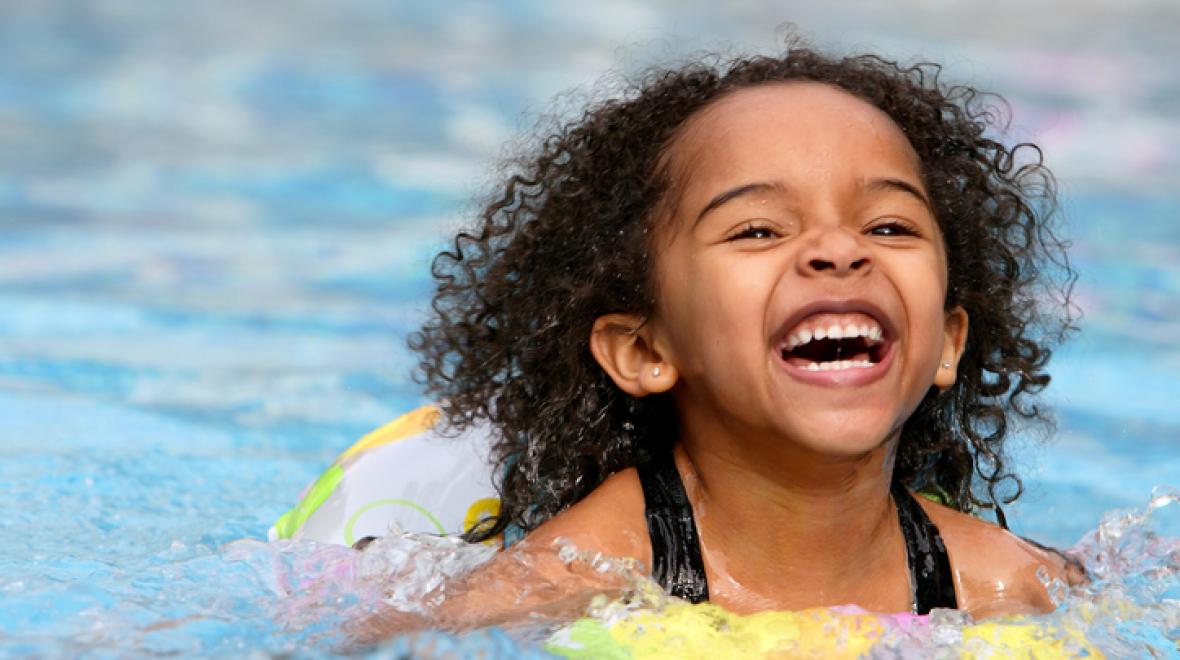
When I was a kid in the '80s, my mom taught my brother and me how to swim by bringing us to a pool and showing us how to float on our backs, hold our breath underwater, kick our legs and do a basic breaststroke. We practiced every summer, building on those original skills, and never took a single swimming lesson.
Today, professional lessons are practically non-negotiable for parents. It’s a matter of “when,” not “if.” But are they really necessary? Or can kids learn to swim just as effectively at home?
ParentMap talked to Dr. Phil Boucher, a pediatrician from Lincoln, Nebraska, and Stephanie Segovia, aquatics director at the popular Seattle-based Samena Swim and Recreation Club, about the pros and cons of professional swimming lessons.
Pro: Proper technique from trained instructors
“Swim instructors know the correct progressions for each stroke, rather than just ‘put your head down and move your arms,’” Segovia of Samena says. “The American Red Cross has done a great job of researching how to break down a stroke and teach [each one] from the very beginning.”
A child attending professional swimming lessons will likely be getting an education from someone certified by one of several professional organizations (like the American Red Cross). Some facilities, Segovia adds, will train non-certified instructors themselves through a shadowing program, but all employed instructors will have plenty of hands-on training and experience.
Pro: Less resistance
“Children have a tendency to 'tune out' when their parent is talking to them, and that includes when they are trying to teach them anything,” says Segovia. “I know many swim instructors who have sent their children to swim lessons with other instructors [because of this].”
Boucher agrees, noting that his own children felt “less anxious” working with an instructor and that swimming in a group with peers reduced some of their fears of the water.
Con: Cost
The cost of professional swim lessons can be a major deterrent for many families, particularly during a summer filled with camps and child care.
At Samena, youth lessons range from $40 to $80 for members and $59 to $118 for non-members (depending on the length and type of course). That adds up quickly for a family.
If price is an issue, talk to your local YMCA or recreation club about financial aid or scholarship opportunities. Samena, for example, partners with the Boys and Girls Club to provide free lessons on a Michael Phelps Foundation grant.
Want to teach at home?
Don’t stress if you can’t swing the cost of lessons or it’s just not the right choice for your family — teaching your kid yourself is not an impossible task. But in order to do it effectively, there are a few things to keep in mind.
- Emphasize water safety. Rather than drilling specific skills, Boucher advises parents to promote overall water safety. Teach your kids to maintain an adequate distance from the water and show them what to do if they accidentally fall in somewhere (like a pool or lake). He also reminds parents to be aware of pools not properly secured or safeguarded with fences and covers.
- Begin with basics. “First swim skills usually include blowing bubbles, submersion of face and head and floating on one’s back,” says Boucher, though he warns parents not to assume that a child can be left safely alone in the water once these basic skills have been mastered.
At first, just focus on getting your child acclimated to the water, so they are receptive to learning more advanced skills. A Coast Guard-approved flotation device is a safe way for your child to feel more comfortable while learning to stay afloat in the water - Be vigilant. “No amount of swimming lessons early in life makes a child more safe around water,” Boucher says. “Parents shouldn’t let their guard down because their 2- or 3-year-old has good swim strokes for his age. Children under the age of 4 are at a high risk of drowning regardless of swimming ability.”
Bottom line: Professional lessons or not, even star swimmers need to be constantly supervised in the water — that’s the best way to keep your kids safe.











